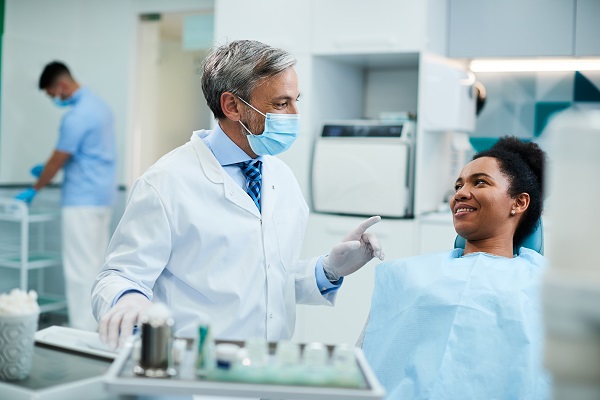Do All Orthodontists Need to Be Board Certified Orthodontists?

A board certified orthodontist is a dentist who has spent hundreds of additional hours studying and practicing the skills need to provide orthodontic care at the highest levels. They are certified by the American Board of Orthodontics, the only orthodontic specialty board recognized by the American Association of Orthodontists and the American Dental Association.
Orthodontists do not need to be board certified to practice their craft. They only have to be licensed by the state that they practice in. A board certified orthodontist has proven their accomplishments in patient care with various accomplishments and has passed an interview performed by expert examiners.
How a board certified orthodontist can help
To become an orthodontist, dental school students need to complete a dentistry graduate program and earn their Doctor of Dental Medicine or Doctor of Dental Surgery. They also have to complete residency for two to three years at an orthodontic program that has been approved by the Commission of Dental Accreditation.
Getting board certified is the last step for those who choose to do so after a long education program that gives them the skills, judgment, and knowledge that they need to take care of their patient’s dental needs. Board certified dentists have to renew their certification every 10 years to prove their commitment to continuous education and quality patient care.
Orthodontics
Orthodontists specialize in orthodontics, which is a branch of dentistry that focuses on issues that affect how teeth and facial structures like the jaw are aligned. This branch of dentistry provides many more services than simply straightening teeth. It often involves addressing issues that affect the patient’s jaw and improving their bite.
An orthodontist has unique skills that help in the prevention, diagnosis, and treatment of a wide range of orthodontic issues. These oral professionals dedicate their lives to helping craft healthy, aesthetically pleasing smiles for patients of all ages.
Well-aligned teeth tend to look more attractive, and they are easier to clean and maintain. Misaligned teeth often overlap each other, making it harder to remove food particles and plaque off their surfaces. Well-aligned teeth make it easier to chew, bite, and speak. Poorly aligned teeth negatively impact these things and can affect a child’s development.
For example, a child who has difficulty speaking because of orthodontic issues might be reluctant to engage in activities that require them to speak or pronounce words. Ways that an orthodontist might address bite issues include:
- Metal braces
- Ceramic braces
- Clear aligners
- Jaw expanders
- Extraction
- Lingual braces
Orthodontics is an essential part of dental care
Poorly aligned teeth affect the way that your smile looks and can lead to you being hesitant to flash your teeth in public. It can also make your teeth more vulnerable to issues like tooth decay. An orthodontist can help diagnose the root cause of such issues and perform appropriate treatments, restoring your smile and your ability to speak and chew properly. Give us a call or stop by our Reston clinic to set up an appointment with our dentist.
Request an appointment here: https://www.orthodonticprecision.com or call Precision Orthodontics & Pediatric Dentistry at (703) 391-8800 for an appointment in our Reston office.
Check out what others are saying about our dental services on Yelp: Orthodontist in Reston, VA.
Recent Posts
Many have heard of traditional metal braces, but fewer are familiar with how lingual braces for orthodontic therapy work and the unique advantages they can offer. This review discusses the basics of lingual braces to help you determine if treatment is right for you according to your needs and treatment preferences.Lingual braces are more discreet…
At certain points in life, orthodontic therapy may be more helpful and necessary. Take the adolescent years, for example. At this time of life, people are particularly mindful of their appearance and may feel self-conscious. Teens who have crooked teeth can get relief and get a new, straight smile. A visit to the orthodontist can…
Maintaining the position of the teeth after orthodontic treatment requires the use of dental retainers. Read on to learn about the different types of retainers available. As soon as the braces or aligners come off, your teeth will begin repositioning themselves to where they were before treatment. To avoid relapse, you should use retainers. They…
An orthodontist can recommend different teeth straightening options to adult patients. These methods can deal with any orthodontic issue. Your choice will depend on your needs. If you want to find out what you should know about teeth straightening options for adults, here are the details.Many adults want to be better-looking. A person’s smile is…


